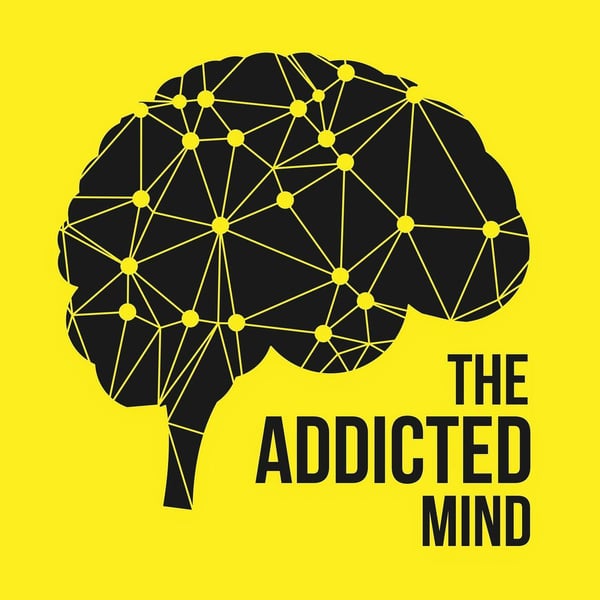111: Mindbloom & Psychedelic Medicine with Dylan Beynon
The Addicted Mind Podcast
Duane Osterlind, LMFT
4.8 • 621 Ratings
🗓️ 18 December 2020
⏱️ 41 minutes
🧾️ Download transcript
Summary
On this episode of The Addicted Mind Podcast, Duane talks to Dylan Beynon, founder, and CEO of Mindbloom, a health and well-being company that provides physician-prescribed psychedelics and guided ketamine therapy.
Dylan describes the time he first experienced MDMA at the suggestion of a friend who thought he needed to break out of his shell. Having an enlightening experience, Dylan sought to figure out how to use ketamine to help people break out of their traumas and addictions. But how does ketamine actually help you?
Two years ago, under ketamine therapy, Dylan personally realized the therapeutic value of psychedelics. He explains that the effects of ketamine therapy are that they open up the brain’s neuroplasticity, which allows people to lay down some new ways of thinking. It can ultimately push people out of their established neuropathways to open their eyes to new options for positive change.
What is the difference between recreational and therapeutic use? Research has shown that single, recreational use of ketamine in a controlled environment has a response rate for symptoms of depression of 65 to 70%, Dylan explains, which is much higher than common SSRIs like Lexapro and Wellbutrin.
Mindbloom has three main goals:
A lot of psychedelic therapy is in setting the stage for lasting behavioral changes from engaging neuroplastic states. Preparation, experience, and integration are the three stages of psychedelic therapy. Great effort goes into preparing clients for the experience and what to do when under a psychedelic experience. They try to get clients to get into the habit of journaling so that they do not forget the new “feelings” or “memories” they experience during the opened window of neuroplasticity.
The mission at Mindbloom is to “transform minds today to transform lives tomorrow.” Their protocol is four ketamine therapy sessions over 1-2 months. The neuroplasticity and behavioral changes should compound over that time period. The goal, though, is indefinite lasting change. And overall, it is extremely safe to use in a controlled setting. There are dangers when used recreationally, but Mindbloom is committed to providing safe access to this revolutionary means of therapy.
Support this podcast at — https://redcircle.com/the-addicted-mind-podcast/donations
Learn more about your ad choices. Visit megaphone.fm/adchoices
See Privacy Policy at https://art19.com/privacy and California Privacy Notice at https://art19.com/privacy#do-not-sell-my-info.
Transcript
Click on a timestamp to play from that location
| 0:00.0 | All right, everyone, welcome to episode 111 of the Addicted Mind podcast. |
| 0:12.9 | My name is Dwayne Austerlund, and I'm your host. |
| 0:16.0 | And today's guest is Dylan Beinen, and he is the CEO and founder of a Mind Bloom that works with |
| 0:27.2 | ketamine treatments to help people who are struggling with anxiety and depression. |
| 0:33.0 | A great interview, and we really get into some of the neurological components of using psychedelics |
| 0:40.4 | to heal the mind. Super cool. So the way I met Dylan was through my brother, who is a nurse |
| 0:51.8 | practitioner and works at Mind Bloom to help patients go through this process. |
| 0:58.5 | And so I was hearing some of the stories about patients using these ketamine treatments to |
| 1:04.9 | overcome depression and anxiety and was pretty amazing. So I was able to reach out to Dylan and get him to come on a podcast and talk about it. |
| 1:17.8 | Because I think that some of these cutting edge treatments can really help people. |
| 1:24.3 | And it can be another, as I say in the episode, tool in the toolbox to be |
| 1:28.8 | able to make the changes and shifts that you need to be able to feel better and live the life |
| 1:35.2 | you want. So we go into an in-depth conversation about it and I can just tell Dylan is so |
| 1:41.2 | passionate about bringing care to people out there. |
| 1:44.9 | So it was a great interview. |
| 1:45.8 | Really enjoyed it. |
| 1:46.4 | I hope you like it as well. |
| 1:48.0 | Also, if you are enjoying the Addicted Mind podcast, please subscribe in iTunes or share |
| 1:55.0 | the podcast with a friend or leave a review. |
| 1:57.0 | That really does help get this valuable information out to more people who may not otherwise |
| 2:03.1 | see it or hear it so that they can get the help that they need or they can maybe find the |
| 2:09.7 | way in which they can heal by listening to one of the guests and the addicted mind and say, |
... |
Please login to see the full transcript.
Disclaimer: The podcast and artwork embedded on this page are from Duane Osterlind, LMFT, and are the property of its owner and not affiliated with or endorsed by Tapesearch.
Generated transcripts are the property of Duane Osterlind, LMFT and are distributed freely under the Fair Use doctrine. Transcripts generated by Tapesearch are not guaranteed to be accurate.
Copyright © Tapesearch 2025.

